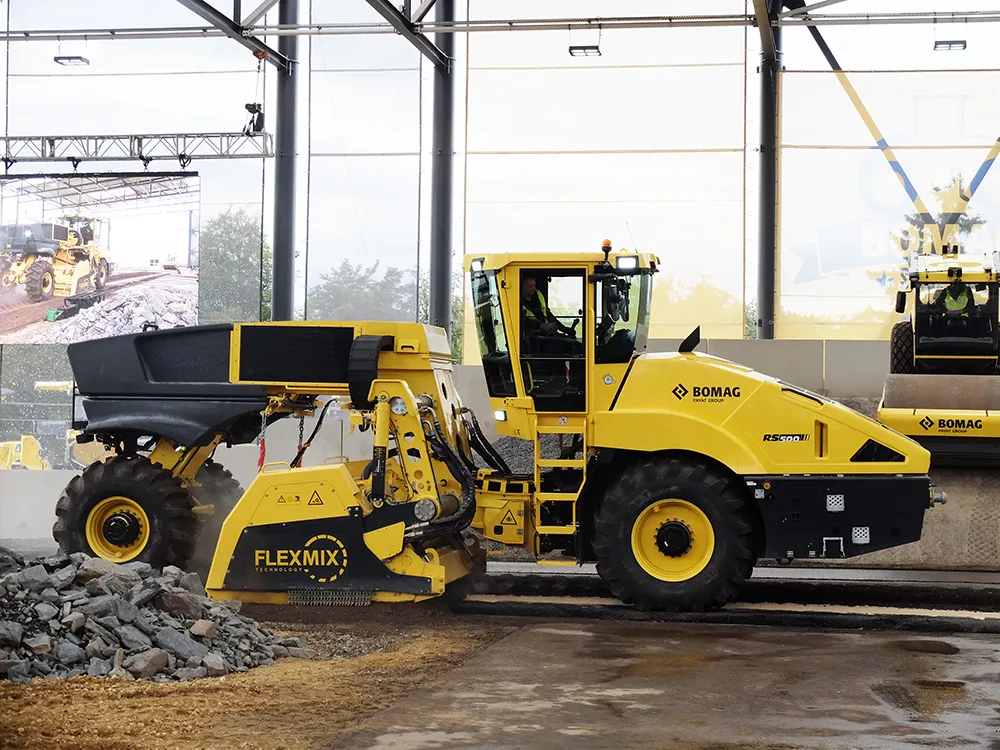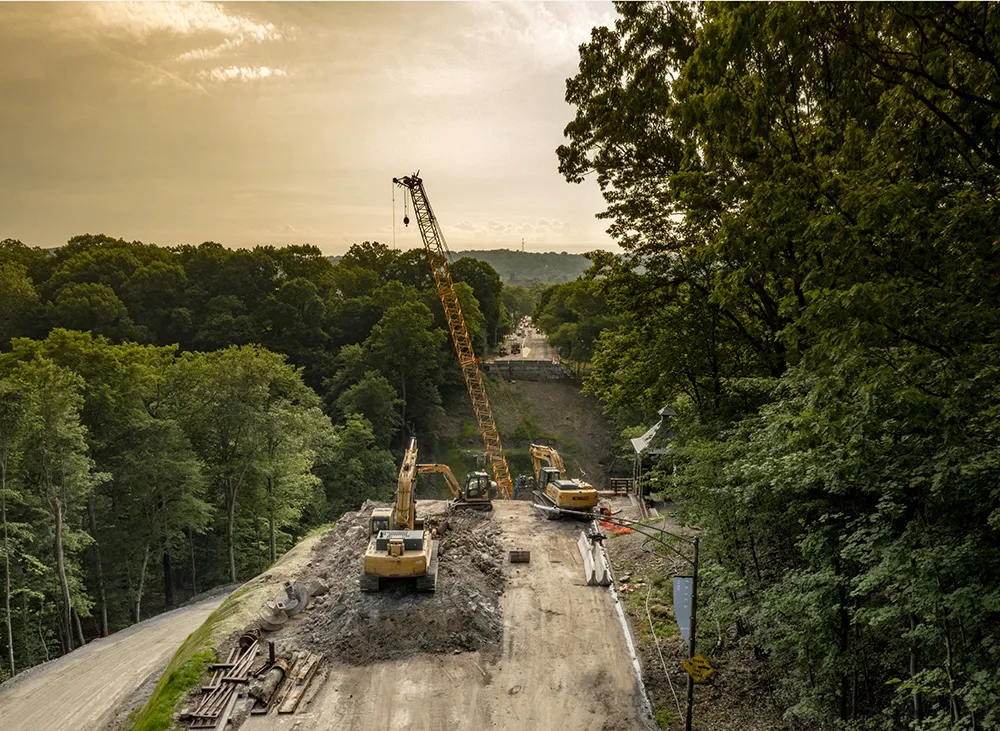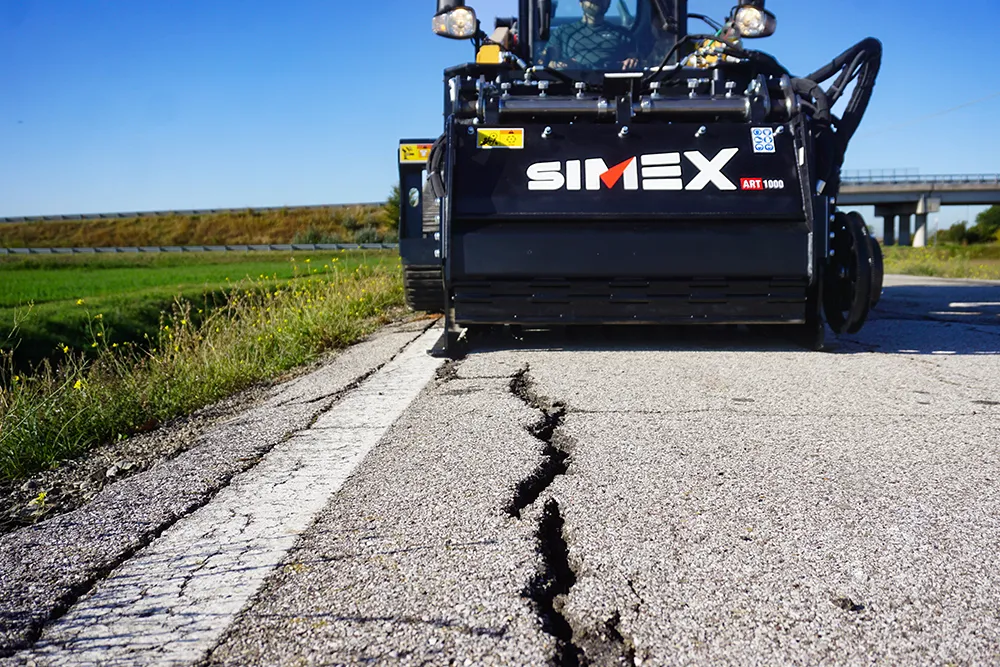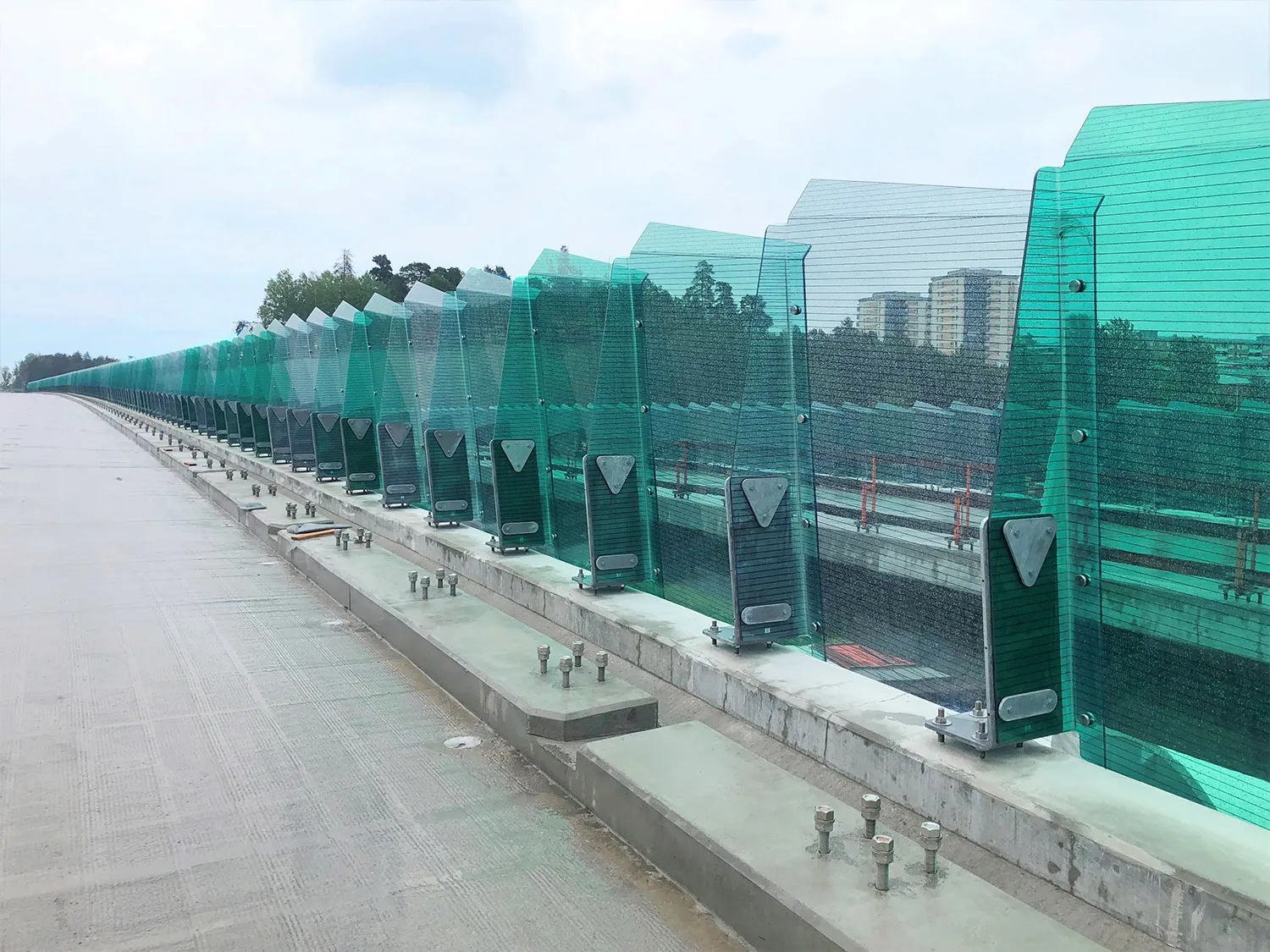
Swedish glazing specialist Hammerglass is supplying around 1,000 transparent sound barrier panels to the Stockholm Bypass – E4 Förbifart Stockholm - project over 18-months.
The Hjulsta part of the bypass consists mainly of bridges and road junctions which makes sound barriers essential for the residential areas.
Hammerglass says that it is the only supplier of what the company calls its PostFree system. The development process was made possible thanks to the company’s 20 years producing only customer-specific unbreakable glazing solutions which includes panels for the cabins of heavy construction machinery.
For the Stockholm Bypass project, the panels have a “bent” side and need no posts for installation. They will be part of a 4km-long wall although some sections will include other sound absorbing materials in accordance with the client’s wishes.
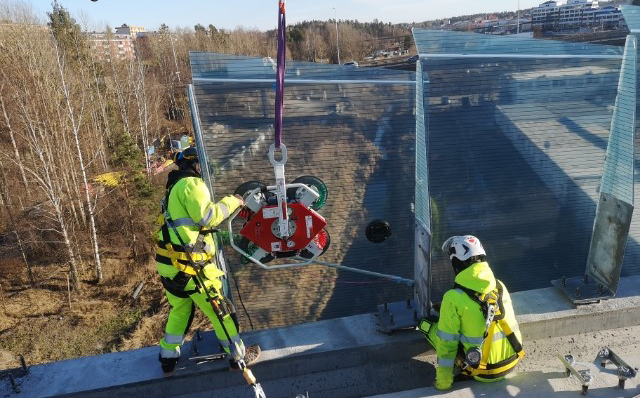
Each sheet is, to the human eye, totally transparent. The company says that people prefer to see through a sound barrier because it then feels less like a physical barrier. It is also not then “hiding” what is going on behind the structure, thereby adding to the viewer’s sense of security.
However, while the screen is transparent to humans, it also comes in three shades of green for a visually pleasing effect. There is also enough internal patterns which are not noticeable to humans but are to birds, meaning they can see the panels and not fly into them.
A Hammerglass sheet is around 1.5m wide and between 2-6m high. Around 50cm of one side is bent, or curved, to a 90° angle. The company also claims that each sheet is unbreakable. The most common sheet thickness for highway use is 12mm. For railroad applications the thickness is usually 15mm. Hammerglass says one of its PostFree panels weighs less than half that of a similarly sized glass sheet. Its lightness makes installation easier and faster than for glass.
A sheet’s effectiveness is measured in by Rw - or a weighted sound reduction index. This is an International Organisation for Standardisation (ISO) rating and part of the ISO 140 (Acoustic) family. The 12mm thickness has an Rw of 34dB, meaning the client can expect the noise it wants to block will be reduced by 34 decibels.
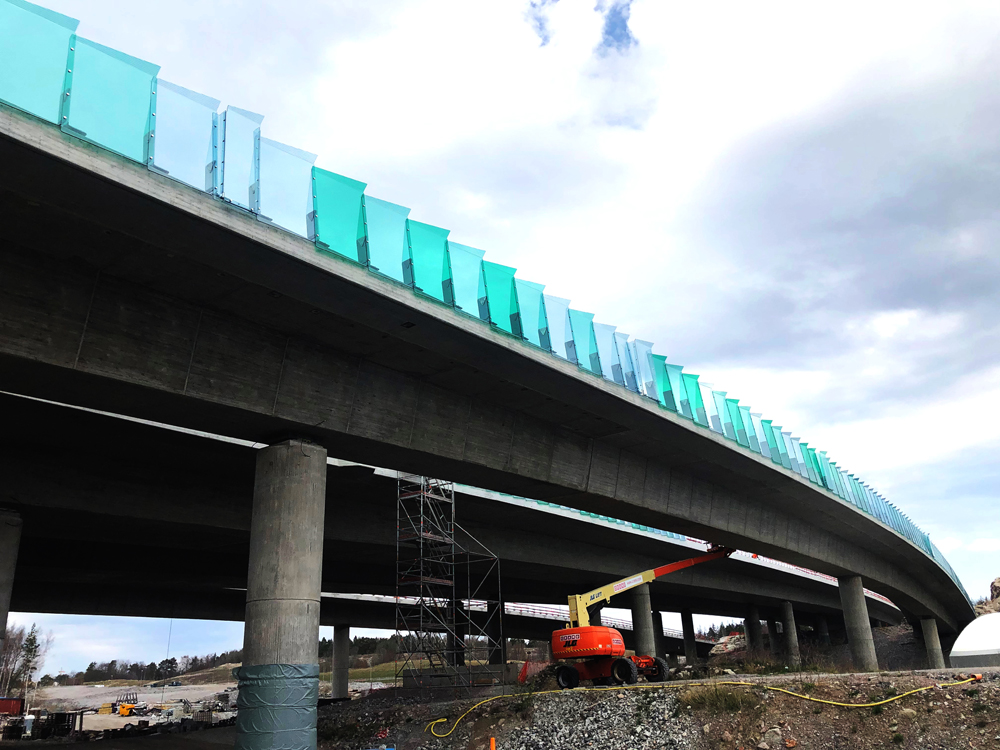
The PostFree system is fixed into position by a steel plate, or a steel “foot”, that is embedded into or bolted onto the cement curb, road section or a bridge’s superstructure. Each panel slightly overlaps the next one to it and is secured using several fixing bolts.
Importantly, the polycarbonate hard-coated surface has a layer of silicon oxide that makes it very easy to clean off graffiti and dirt which helps reduce maintenance costs. As well, a panel provides 99.96 % UV-protection. It will not cloud or discolour or undergo any other change in optical quality over time. The company says that a sheet’s estimated service life is more than 40 years.
Hammerglass has already delivered the unbreakable noise barrier panels for use in other projects by the Sweden’s Transport Administration which, in 2018, held a public procurement process for a noise barrier that needed no posts for installation. Hammerglass says it was the only company to take on the challenge and came up with their solution now being used by the Administration.
To see a demonstration of the durability of the company’s panels, click here.


